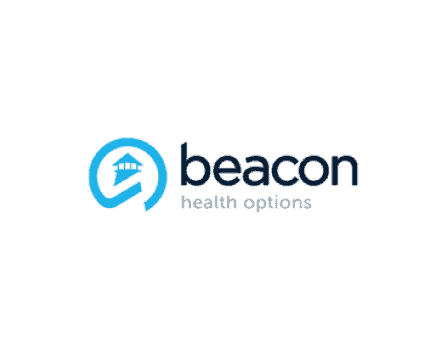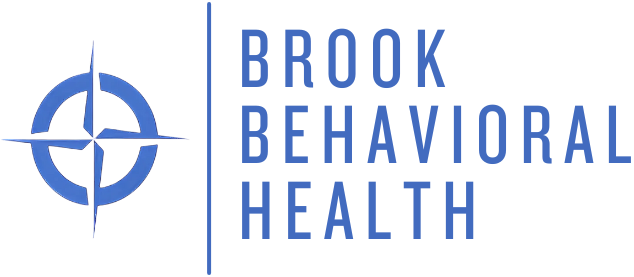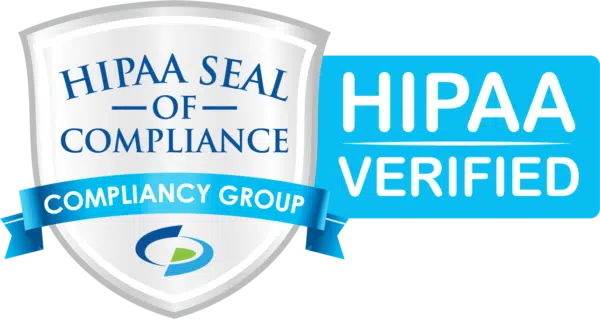Signs of An Enabling Parent: How Parents and Family Members Can Effectively Help a Loved One Without Enabling Addiction
As a parent, the natural inclination is to support our children in every possible manner, yet where do we draw the line between providing constructive assistance and fostering dependency in a child who is struggling with addiction? In this article, we will explore the signs of being an enabling parent how this might manifest in those we deeply care for.
What is the Definition of Enabling?
Enabling can be defined as the act of unintentionally or intentionally supporting and perpetuating someone’s destructive behaviors or negative habits, particularly in the context of addiction or drug use, and alcohol abuse. It involves actions or behaviors that shield individuals from the natural consequences of their actions, thus hindering their personal growth and accountability.
Enabling can take various forms, such as providing financial assistance, making excuses for their behavior, minimizing the consequences of their actions, or continuously rescuing them from facing the full impact of their choices.
While enabling may stem from a place of care and concern, it ultimately hampers the individual’s ability to face the reality of their situation and take necessary steps towards recovery or change.

Identifying Enabling Behaviors: The First Step Towards Recovery
Ignoring Consequences: One common sign is disregarding or minimizing the negative consequences of the person’s addictive behavior. This could involve making excuses for their actions, covering up for them, or taking responsibility for their mistakes.
By shielding them from facing the repercussions, you inadvertently enable them to continue their destructive behavior without fully experiencing the impact of their own actions themselves.
Financial Assistance: Enabling often involves providing financial assistance to sustain the person’s addictive habits. This can range from giving them money directly to get drugs, paying off their debts, or funding their expenses related to their addiction.
Financial assistance not only enables them to continue their harmful behavior but also relieves them of the responsibility of managing their own finances and facing the financial consequences of their addiction.
Codependent Relationships: Enabling often involves the presence of codependent relationships, where there is an unhealthy reliance and excessive emotional investment in the person struggling with addiction. Codependency may manifest as constantly prioritizing their needs and wants above your own, neglecting your own life and self-care, and feeling responsible for their actions and well-being.
This dynamic reinforces the dependency on the addiction and can hinder both your personal growth and their path to recovery.
Rescuing and Fixing: Enabling behavior often revolves around constantly rescuing the person from the consequences of their addiction. This can include bailing them out of legal trouble, repeatedly providing emotional or financial support even after relapses, or consistently trying to fix their problems for them.
While it may stem from a genuine desire to help, it prevents them from experiencing the full weight of their actions and can perpetuate a cycle of dependency rather than encouraging personal accountability.
Allowing Manipulative Behavior: Addiction can lead individuals to exhibit manipulative behaviors as a means to continue their substance abuse or addictive behavior. One sign of enabling is falling into the trap of enabling these manipulations.
This can involve giving in to their demands, believing their lies or excuses, or trying to control or cover up their bad behavior or protect them from consequences. Enabling manipulative and negative behaviors reinforces the addictive cycle and undermines the possibility of genuine change and recovery.
It is important to note that recognizing these signs is the first step, and seeking professional help, guidance, and support is recommended for understanding the best strategies to break the enabling cycle and promote a healthier environment for recovery.
Get Answers to Your Questions Now
Are you looking for information on addiction treatment options, or just need someone to talk to? We are here to help.
Why Do We Enable Our Loved Ones?
Enabling our loved one’s addictions or substance and alcohol use disorders or abuse can stem from various underlying factors and complex emotions. Understanding these reasons can shed light on why enabling behaviors may occur:
Fear of Confrontation
Many individuals may enable their loved one’s addiction due to a fear of confrontation or conflict. Confronting the addicted person about their addictive behavior can be incredibly difficult and emotionally charged, leading some to choose the path of least resistance.
Avoiding confrontation can provide temporary relief from tension or potential arguments but ultimately perpetuates the destructive cycle by allowing the substance or alcohol abuse to continue unchecked.
Guilt and Shame
Parents and children often feel guilty and ashamed, and both play a role in enabling behavior. A family member may blame themselves for the person’s addiction, believing they failed in their role as a caregiver or protector.
As a result, they may try to compensate by providing continuous support, even if it reinforces the addictive behavior. The desire to alleviate guilt and shame can lead to overcompensation and an enabling dynamic that prevents the individual from facing the consequences of their actions.
Fear of Loss or Abandonment
Enabling can also arise from a deep-rooted fear of losing the person or the relationship. Loved ones may worry that if they don’t provide support, the person struggling with drug or alcohol abuse will distance themselves or cut ties with the entire family altogether.
This fear can be particularly prevalent in situations where the loved one’s identity and purpose revolve around taking care of an adult child. Consequently, enabling behavior becomes a misguided attempt to maintain the relationship, even if it perpetuates the destructive cycle.
Lack of Knowledge and Resources
In some cases, enabling can occur due to a lack of knowledge about addiction and available resources. Loved ones may not fully understand the nature of addiction, the enabling dynamics at play, or the appropriate steps to recovery.
Without the necessary information and guidance, enabling behaviors may be unintentional or born out of a genuine desire to help. Educating oneself about addiction, seeking professional advice, and accessing support networks can empower loved ones to make informed decisions and break the enabling cycle.

How To Create Healthy Boundaries with Your Addicted Child
Creating healthy boundaries with your addicted child is essential for both their well-being and your very own health. Here are some strategies to help you establish and maintain those boundaries:
Define Your Boundaries
Begin by clearly defining your boundaries and what you are comfortable with in terms of behavior, interactions, and support. Reflect on what you are willing and unwilling to tolerate, and identify the specific actions or behaviors that cross those boundaries.
Communicate Openly and Assertively
Effective communication is key when setting boundaries. Clearly express your expectations, concerns, and limitations to your addicted child. Use “I” statements to express your feelings and avoid blaming or shaming language.
Be assertive and firm but also empathetic and compassionate. Remember to maintain open lines of communication and encourage them to share their thoughts and feelings as well.
Consistency and Follow-Through
It’s crucial to consistently enforce the boundaries you have established. Set clear consequences for crossing those boundaries and be prepared to follow through with them. Consistency helps establish a sense of accountability and shows your child that you are serious about maintaining healthy boundaries.
Seek Professional Support
Dealing with addiction within the family can be emotionally challenging and complex. Seeking professional help, such as family therapy or a support group, can provide guidance, validation, and practical strategies for establishing and maintaining healthy boundaries.
Practice Self-Care
Creating healthy boundaries also means taking care of yourself. Prioritize self-care activities that help you maintain your emotional, physical, and mental health. Engage in activities that bring you joy, set aside time for relaxation, and seek emotional support from other family members.
When you prioritize self-care, you are better equipped to help your loved one with a substance abuse problem without compromising your own boundaries.
Remember that creating and maintaining healthy boundaries is a process that requires patience, self-reflection, and ongoing effort. It’s essential to be flexible and adjust boundaries as needed while staying true to your own needs and limitations.
Addiction Treatment for Your Loved One
When seeking addiction treatment for a family member struggling, it’s important to approach the process with care and thoroughness. The following steps can help guide you in finding the right addiction treatment program:
Assess Your Loved One’s Needs
Start by assessing your loved one’s specific needs, including the type and severity of their drinking or drug use, any co-occurring mental health issues, and their personal preferences. This assessment will help determine the level of care required and the most suitable treatment options.
Research Treatment Centers
Conduct thorough research to identify reputable addiction treatment programs and centers that align with your loved one’s needs. Brook Recovery Centers is a well-known organization in addiction treatment. With different treatment options, Brook Recovery Centers provides a flexible approach to addiction treatment and recovery. Look for centers that offer evidence-based therapies, experienced staff, and a comprehensive continuum of care.
Insurance Coverage and Financial Considerations
Understand your insurance coverage and explore the financial aspects of treatment. Contact treatment centers directly to discuss insurance benefits, payment options, and any available financial assistance. Brook Recovery Centers, for instance, accepts most major insurance plans and offers financial counseling to help navigate the financial aspects of treatment.

Most Insurance Plans Accepted
Our goal is to make sure that anyone in need of drug or alcohol treatment can get help. Our intake team is dedicated to maximizing your insurance coverage to minimize out-of-pocket expenses. Fill out our insurance verification form with your health insurance information and we will handle the rest.






Our Services
Flexible outpatient program hours to fit the needs of your schedule.

Day Treatment
Master’s Level Clinical Care Provided For Men and Women 5-6 Days a week for 5.5 hours each day.

Standard Outpatient
Brook Recovery Center Offers Once Weekly Group Therapy Sessions with our Master’s Level Clinical Team.

Intensive Outpatient
3-5 days per week to fit the needs of transitioning back into everyday living.

We Are Here to Help
Reach out to us through the confidential form below for assistance on Trying To Figure Out How To Find Intensive Outpatient Program (IOP) Near Me In Newton MA!
Better Recovery is Our Mission
24/7 SERVICE. SAME DAY CONSULTS ARE AVAILABLE.


